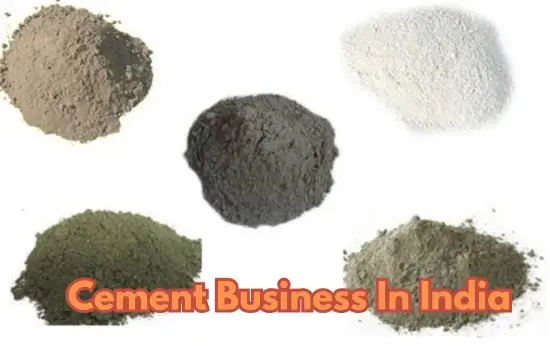How To Start Cement Business In India
India is the second largest producer of cement in the world after China. The cement industry contributes about 0.006-0.10% to the national GDP of India. With the massive influx of capital in construction and infrastructure development in recent years, the cement industry is witnessing high growth rates.
There are about 20 cement manufacturers in India, including several global brands. The cement industry employs more than 1 million people. The various steps to establish a cement business in India have been discussed here.

Business model
The first and foremost step is to determine your cement business model. This implies whether you want to manufacture cement or acquire a cement dealership from cement manufacturers. The type of business model you need depends upon your budget, resources, and preferences.
1. Cement Factory Setup
To get into the cement manufacturing business, you need to complete several steps to get your cement factory up and running. These include everything from factory location selection and raw material supply to budget and environmental clearance.
First, you need to select the type of cement you want to manufacture and the production capacity of your cement factory. Common types of cement produced in India include Ordinary Portland cement, Pozzolana Portland cement, White Portland cement, Refractory cement, and quick-setting cement. The production capacity of your cement factory can be anything from 50 tonnes per day to 10,000 tonnes per day, depending upon your budget, the cost of raw materials, and the local market.
The location of the cement factory needs to be selected based on the availability of raw materials such as limestone, gypsum, coal, water, and power supply. It is important to ensure that the supply of raw materials is assured for at least 20-40 years. The factory’s location should be well connected with a high-voltage power supply. The location of the mines to source limestone and other raw materials should not be so far as to increase the production cost due to the high cost of transporting raw materials.
Environment clearance is required to establish the cement factory. To this end, you must submit a plan for your factory and its intended operations to the relevant authorities. You must also register your cement manufacturing business with the Ministry of Corporate Affairs.
You need to purchase a plethora of machines to manufacture cement. These include a cement vertical mill, cement ball mill, shaft kiln, cement rotary kiln, cyclone preheater, cement roller press, long-distance conveyor belt, grinding machine, dust removal machine, thermal equipment, and packing machine.
Skilled manpower to run your cement factory is a basic requirement. To this end, you must hire engineers and technicians to handle the factory equipment. Overall, 30-40 personnel are required to run a cement factory.
The investment required to start a cement manufacturing business must cover various expenses. Some of the major expenses that must be taken into account are the cost of purchasing the land, factory construction and equipment installation costs; logistics costs for raw materials, power supply costs, operating and maintenance expenses, wages for the workmen, packaging costs, and transportation cost to supply the cement to the market.
2. Cement Dealership Business
You can also opt to become an authorized dealer of cement manufacturers, including leading brands such as Jaypee, Ultratech, Ambuja, JK, and others. There are some requirements to obtain a cement dealership.
The minimum space required to operate a cement dealership is 500 square feet. However, this figure may vary from one brand to another. The recommended size is 600-1500 feet, depending upon the scale of your business.
As regards the initial investment, it is usually between 5-6 lakhs rupees. Most top cement brands require a security deposit of 2-3 lakhs. Other expenses include inventory, commercial premises equipment, rental, wages for a minimum of 2 laborers, and cost of transportation.
GST registration and registration under the Shop and Company and Establishment Act as a Private Limited, Proprietorship, or LLP are mandatory to apply for a cement dealership. Other required documents include IT returns and bank statements of the last financial quarter, details of taxpayer identification number, business insurance, and trade license. Additional documents may also be required depending on the specific cement manufacturer.


